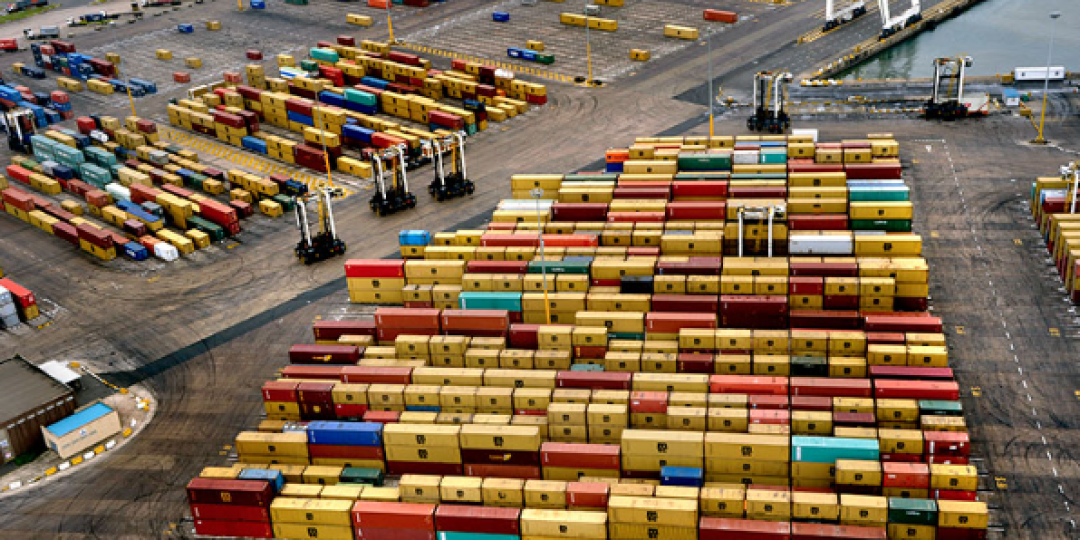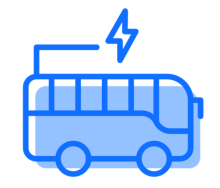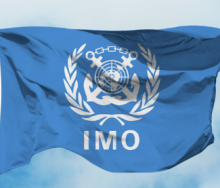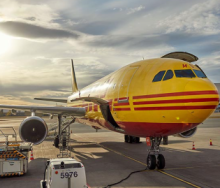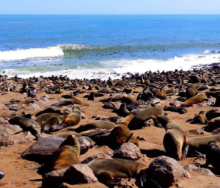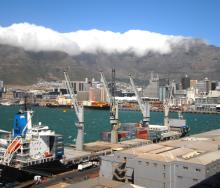Transnet has reiterated its stance about demurrage fees, claiming that it neither charges for the late return of containers by transporters, nor is it responsible for delay-related costs imposed by shipping lines on harbour carriers and the clients they represent.
According to Simphiwe Mpanza, regional corporate affairs manager for Durban Terminals, harbour-side hauliers affected by exorbitant demurrage costs should “contact the relevant parties who apply those charges, as it is outside our purview”.
But transporters responsible for the land-side movement of cargo at Durban Container Terminal (DCT), say their hands are tied.
By not paying demurrage fees, they risk falling foul of shipping lines.
Yet they don’t have timely access to the terminal to fetch and return containers, mainly because of Transnet.
For the logistics utility to shrug and say it’s not their issue, that harbour carriers should communicate to the lines, which they do, is blatantly shirking responsibility for their role in container snarl-ups and resulting movement delays, transporters say.
But the state-owned company (SOC) claims that its hands are often tied by a much bigger issue – wind, rain and swells.
Mpanza said: “Inclement weather poses many challenges in terminal operations and this includes extended truck turnaround times (TTT), as experienced in the last two weeks after the heavy rains in Durban.”
In response to harbour carriers complaining that Transnet Port Terminals (TPT) simply does not have the crane functionality to meet demand, especially during peak times, Mpanza said that in October, DCT Pier 2 had averaged 57% in straddle carrier availability, 96% in ship-to-shore crane availability and 110% in wharf hauler availability.
Mark Chettiar, who heads up the harbour carrier pressure group, Change in Logistics, said this was not enough.
“Ideally, they should have about 90-100 carriers in operation. Sometimes they only have half of the available cranes required to adequately move containers.”
Chettiar is certainly not alone in complaining about what industry generally agrees is an old problem – efficient equipment care, reliable asset acquisition and machine parts availability to serve the country’s ports.
A former director of the South African Association of Freight Forwarders, the late Mike Walwyn, once described it as “an old issue, something Transnet should’ve sorted out long ago”.
He added that the robust ability the SOC once had to bounce back from weather events, had also sadly deteriorated.
In fairness, Chettiar said it should be taken into account that it was often not for lack of trying that TPT officials had to bear the brunt of industry’s accusation that Transnet was simply not doing what it should – effectively facilitating trade.
“You’re only as good as the equipment you have at your disposal,” an accusation of poor-quality machinery and subsequent failure that was also spoken of by an industry executive at an MSC cocktail function last week.
Regarding persistent problems with its straddle-carrier capacity, Mpanza, said: “The terminal is due to receive components for 20 straddle carriers by the end of November 2024.
“According to the plan, four straddle carriers will be assembled and fully commissioned every month – with the first batch of four deployed in operations by the end of January 2025.”
In response to Mpanza’s comment that Transnet was not responsible for demurrage, Chettiar said: “As road hauliers, we are governed by port efficiencies or inefficiencies.
“It is in our best interest to evacuate containers as fast and as quickly as possible. This has simply not been achievable due to the poor TTT within the terminals, which is ultimately intertwined and governed by the lack of Transnet’s full contingent of equipment availability.”
Adding to the frustration of hauliers, said Chettiar, was TPT’s truck booking system, whereby harbour carriers were given slots to access DCT.
Whereas Transnet continues to claim that the system works, transporters generally lament the woefully inadequate means whereby slot allocations are applied.
Let’s just say that, as with Transnet’s equipment problems, the truck booking system is a very old issue, one that has resulted in the closure of several harbour carrier companies.
Chettiar argues that Transnet, as South Africa’s logistics utility, has a contractual responsibility to ensure multimodal functionality, as opposed to primarily catering for shipping line interests, the parastatal’s clients.
Although Transnet claims this is not the case, harbour carriers claim they are simply not as important to the SOC.
Worst-case scenario – some transporters say Transnet colludes with shipping lines, in what they, the hauliers, say is the mercenary practice of demurrage charges.
“It is indeed sad that TPT has chosen to not place value on the truck operator in the supply chain model,” Chettiar said.
“Recognition must be given to the direct link between delays experienced by hauliers in terminals and increased costs passed on to cargo owners and the increased overall cost of living in South Africa.”
Whatever cost was incurred because of ineffective cargo throughput at the country’s ports, was invariably passed on to the consumer, Chettiar said.
“We have to absorb the cost to stay in business; it’s as simple as that.”
It includes the exorbitant demurrage fees harbour carriers must pay for cargo that Transnet can’t clear fast enough.
“TPT cannot and must not distance themselves from the fact that they have an immediate bearing on the common South African,” Chettiar said.
